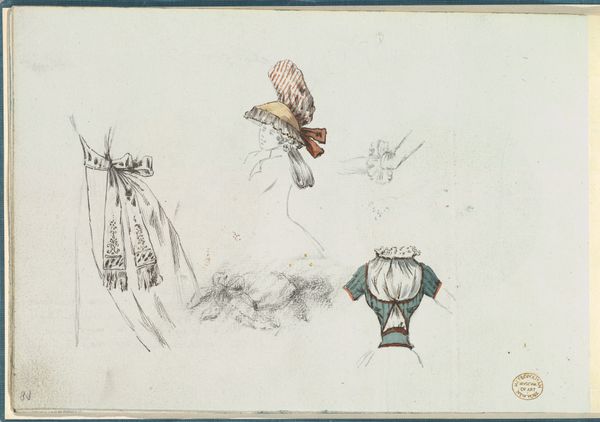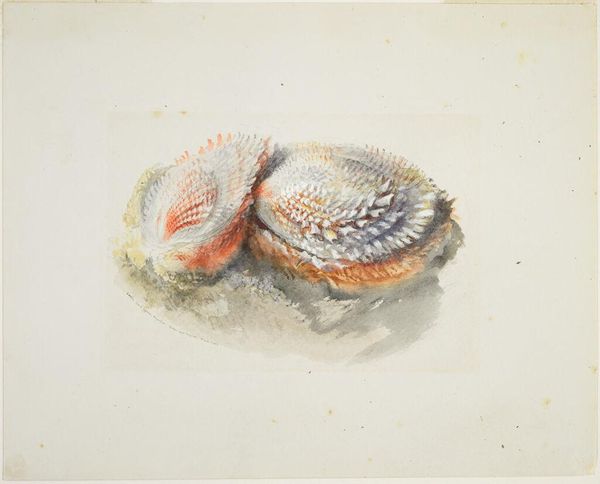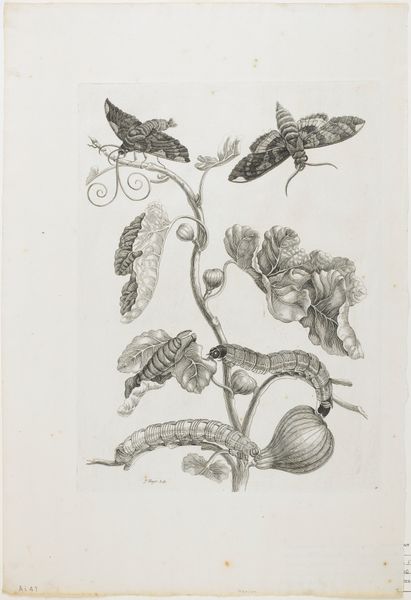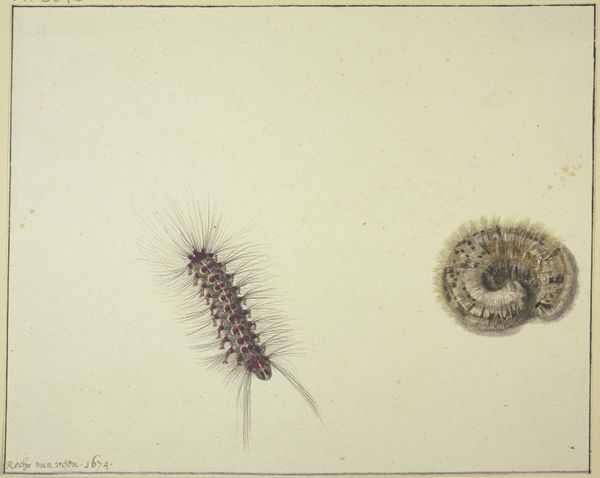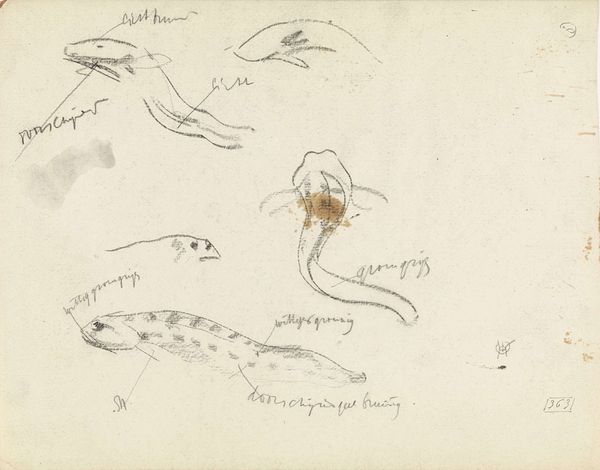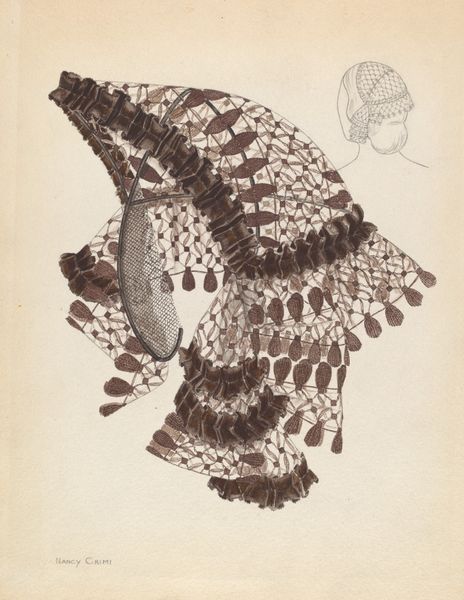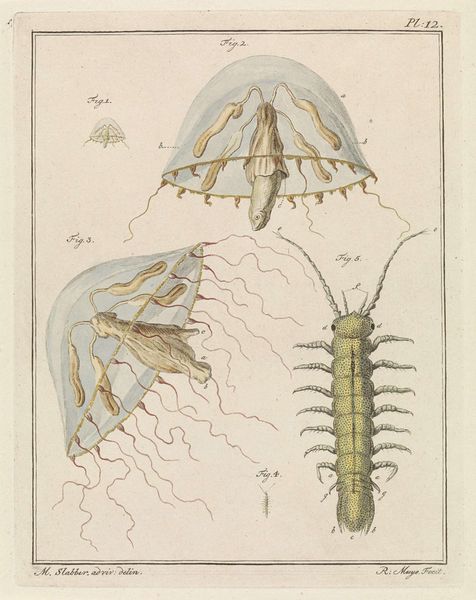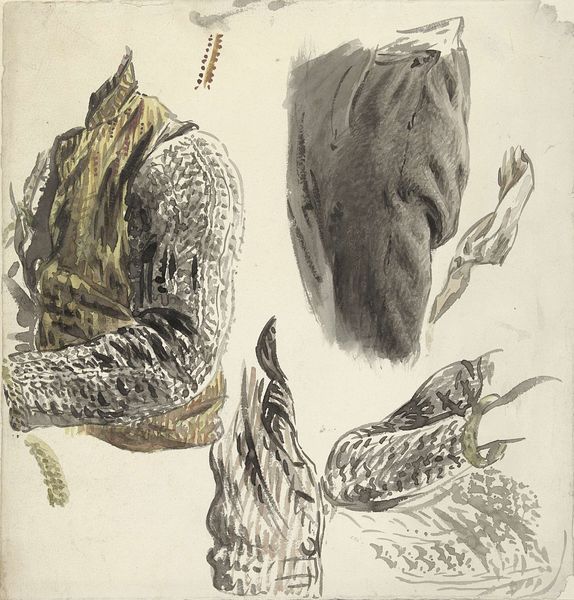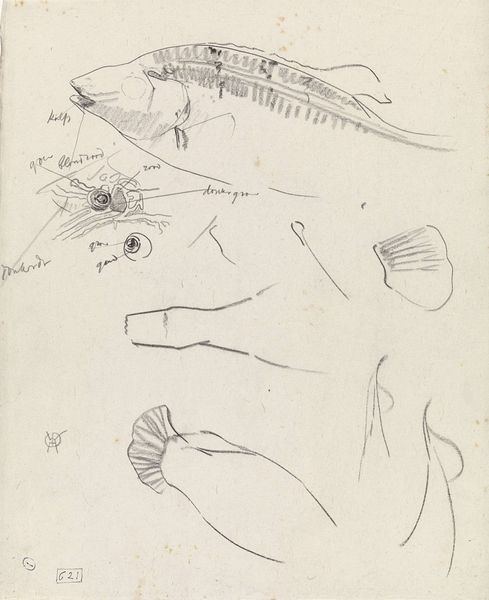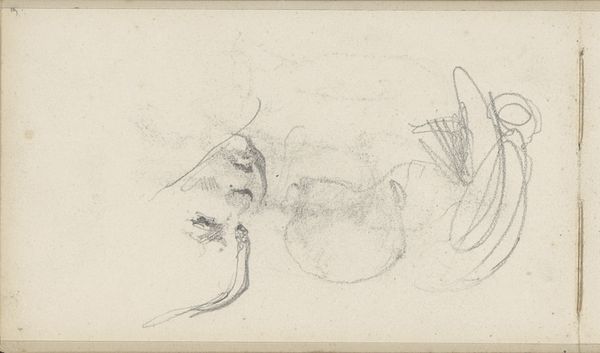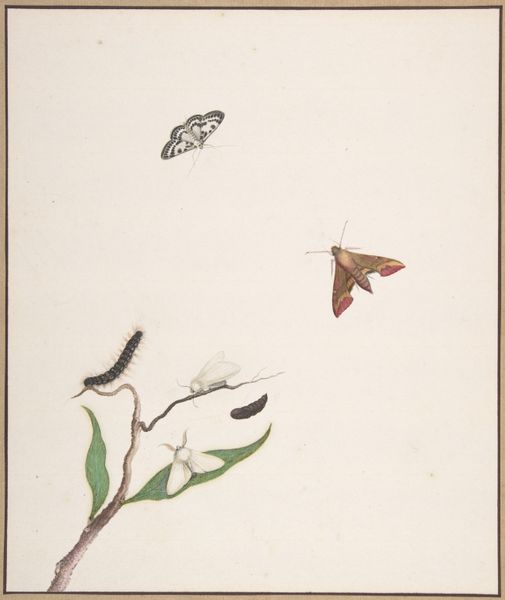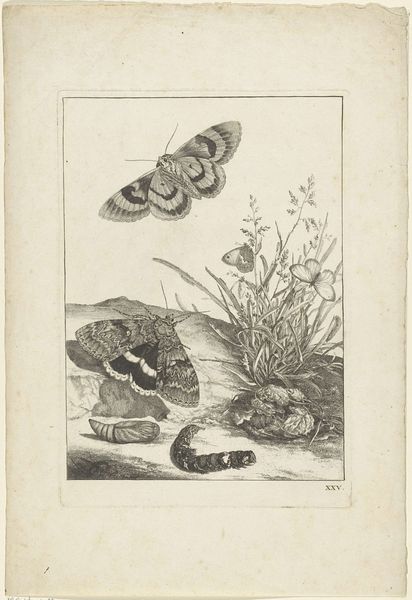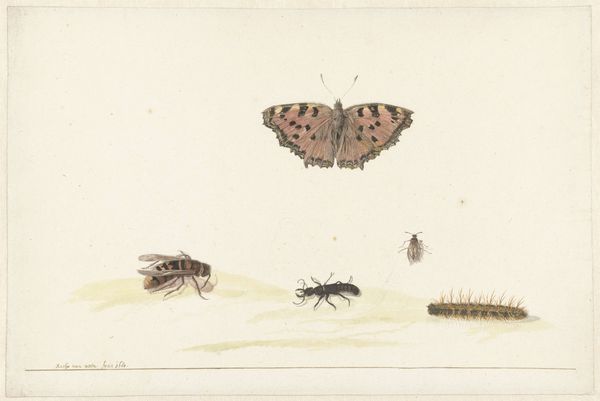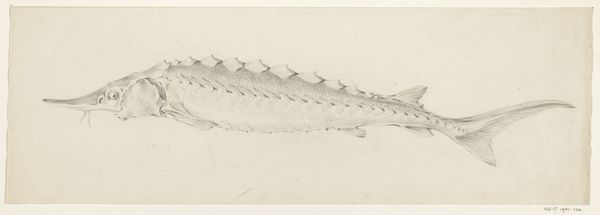
drawing
#
pencil drawn
#
drawing
#
amateur sketch
#
light pencil work
#
quirky sketch
#
pencil sketch
#
incomplete sketchy
#
pencil drawing
#
pencil work
#
watercolour illustration
#
fantasy sketch
Copyright: Public Domain: Artvee
Editor: Here we have "Studies of a Grasshopper – Body, Head and Leg" by Sir John Everett Millais, created around 1853, a drawing that dissects the insect into its individual parts. I find the seemingly random placement of these body parts rather odd. How do you interpret this work? Curator: I see Millais engaging with the burgeoning scientific curiosity of the Victorian era. This fragmented view speaks to the way scientific investigation often dissects and compartmentalizes living beings. Think about the legacy of colonialism during this period and the 'scientific' rationale it employed – classifying, dissecting, and ultimately, dehumanizing people for the sake of power and control. Does the detached study of the grasshopper's body parts evoke similar thoughts of fragmentation for you? Editor: That's a rather dark twist, but I see what you mean! It is like he's reducing a living thing to just component parts to be analysed. But was Millais really critiquing scientific objectification here? Curator: Perhaps not intentionally, but art often speaks beyond the artist's conscious intent. His Pre-Raphaelite contemporaries were fascinated by minute detail. Here, Millais isolates the grasshopper, mirroring the way industrial society was beginning to isolate and categorize aspects of the natural world – turning nature into resource, bodies into commodities. What does it mean to pull something apart in order to truly see it? Who benefits from that kind of knowledge? Editor: Wow, I never thought a drawing of a grasshopper could open up so many complex questions! It's a stark reminder that even seemingly innocuous images can reflect deeper societal issues. Curator: Exactly. And it compels us to consider the ethics of observation, both then and now. Hopefully this makes us see the artwork, and our world, differently.
Comments
No comments
Be the first to comment and join the conversation on the ultimate creative platform.
